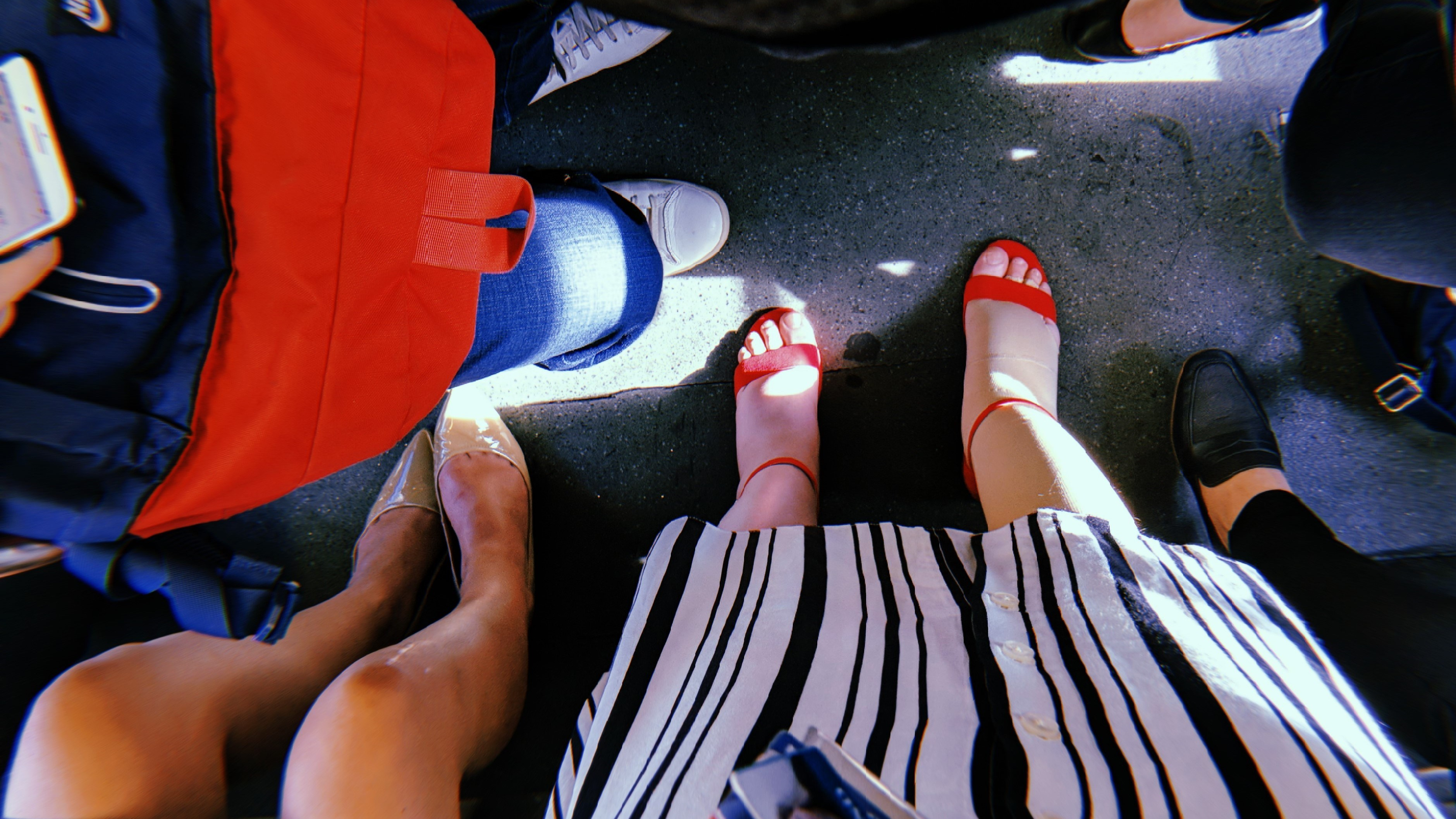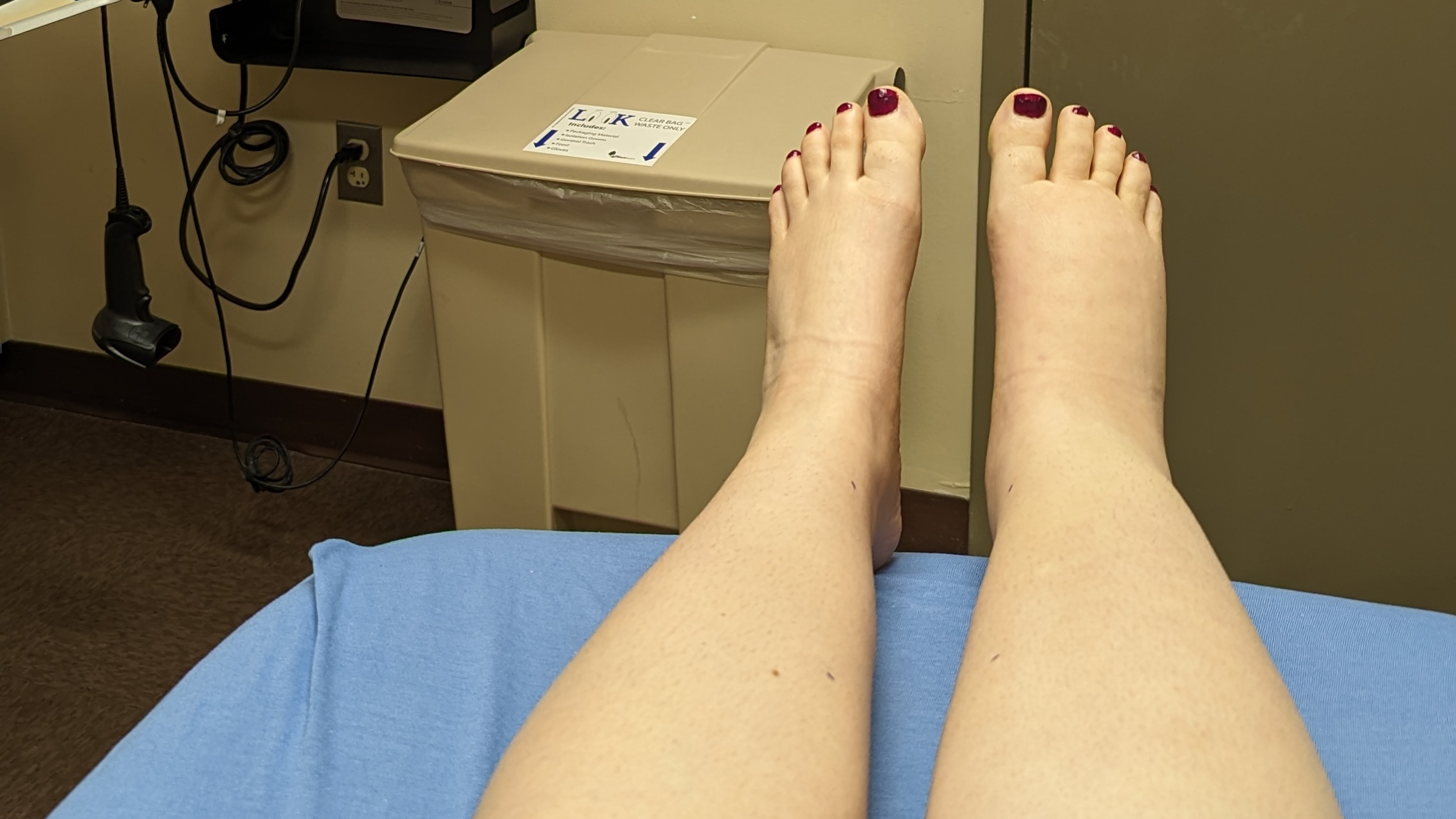It’s Tuesday, around 5:30 in the evening.
I’m on the bus and it’s packed: standing room only. Outside it’s pushing 95°F, and my lymphie leg is throbbing underneath my thick thigh-high compression stocking. The garment is pinching behind my knee; I know my skin is going to be welted and red when I get home.
As the bus turns a sharp corner I brace my feet for balance, grimacing in pain. I forgot to change out of my heels before leaving the office, so both feet are hurting. In my mind I’m screaming: “I NEED A SEAT. I NEED A SEAT. PLEASE, SOMEONE GIVE ME A SEAT.”
But outwardly, I stay silent.
I picture what it would be like to ask a fellow passenger for their seat. I imagine huffs of inconvenience, a questioning glance at my leg, maybe a mumbled excuse. The bus is a shuttle offered by my place of employment — a large academic hospital — so most everyone on it is tired and could probably use a seat. Why should they give me one?
I realize I’m projecting a little. I think I’m just frustrated with the strange, undefined space I seem to exist in as someone with “mild” lymphedema. At first glance, I appear able-bodied: even within the lymphedema community I receive comments accusing me of not having “real” lymphedema, telling me that I’ve got nothing to complain about.
It’s as if there’s a constant demand to prove my lymphedema and its effects are valid — to doctors, to my own patient community, to passengers on the bus — when all I want is to sit down.

It’s not until we reach the third stop that I’m finally able to slide into a vacated seat. I lean over and fumble with the straps on my sandals so I can change into my flats; I notice a young woman giving me a sidelong glance.
“Sure,” I think bitterly, as I shove the pair of heels into my bag. “Now you see my leg.”
I lean back in my seat, surprised at myself: Why am I so angry?
Well, let’s see — I’m on a shuttle bus surrounded by medical professionals and students, yet no one seemed to notice the swollen limb in medical-grade compression standing in front of them for the past two miles. And if they did notice, they didn’t think to offer their seat.
I realize I sound entitled. But in almost two years of riding this bus, only once has someone offered me their seat. Even when my leg was wrapped in thick layers of bandages for an entire month, I was left standing.
What’s worse, though: no one offering me a seat, or me not speaking up for myself while I’m in pain? How can I expect others to look out for me when I don’t look out for myself?
I shift in my seat, trying to catch a hint of air through the cracked window. I pull at the compression stocking behind my knee as I run through potential dialogue for the next time I need to sit down.
“Excuse me,” I imagine myself saying. “I have lymphedema and my leg is in pain. Would I be able to have your seat?”





Leave a Reply to KristinCancel reply